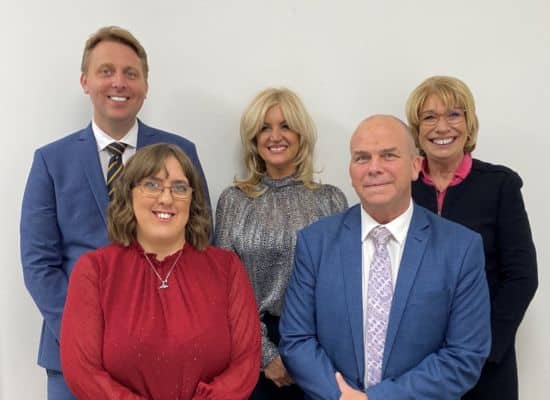Our Gold Coast family mediation & FDR team provides a neutral space to help you work through parenting and property settlement decisions after divorce or separation.

Understanding & Practical
We simplify the process of reaching agreement with your ex-partner, providing clear, practical support to help you make informed decisions and reach fair, lasting outcomes during challenging times.

Parenting & Property
Our Mediators assist with parenting matters and asset division, offering clear, practical solutions to achieve the best outcomes for both your children and financial future.

Affordable Legal Support
Our team offers mediation and dispute resolution at affordable rates, ensuring you receive quality support without financial strain as you navigate your new chapter.

Separation and family law matters can feel overwhelming, but the team at Advance Family Law are here to make the process smoother. We provide neutral, structured mediation services that support you in resolving disputes with your ex-partner, empowering you to reach a fair and amicable resolution.
Gold Coast Mediation
Our family mediation team offers a neutral, structured approach to help you address issues such as property division, parenting arrangements, and financial agreements. We facilitate productive discussions, ensuring both parties can work towards fair, sustainable solutions in a safe and supportive environment.

Need Mediation Support to Resolve Family Matters?
We know this is a challenging time, and you have many decisions to make. Contact us for practical mediation services to address your separation, parenting arrangements, or property settlement. We’re here to help you navigate the process and reach fair, lasting solutions with less stress and cost.

Mediation offers a structured, less costly approach to resolving family law matters. By working together in a neutral setting, you and your ex-partner can reach agreements on parenting, property division and other important issues without the stress of court. Mediation allows for more control, flexibility and better long-term outcomes.




Step 1. Free 15-Minute Consultation
Contact us to schedule a free 15-minute phone consultation. We’ll discuss your situation and explore how our mediation services can help you move forward.
Step 2. Understand Your Mediation Options
We’ll guide you through the mediation process, explaining your rights, the available options, and how mediation can provide a clear path towards resolving your family law matters.
Step 3. Resolve Issues & Move Forward
With our support, you’ll work through the mediation process to find fair and lasting solutions, empowering you to take the next steps in your life with confidence.
Get in touch today to speak to our team about your options for mediation and FDR on the Gold Coast.
WHY US?
Mediation and Family Dispute Resolution (FDR) are similar, but FDR is a more formal, structured process designed to resolve family law disputes under the Family Law Act. FDR involves a Family Dispute Resolution Practitioner (FDRP) who helps separating couples mediate disputes over parenting and property matters. Mediation is a more general term and can be used in various contexts, including informal negotiations.
Not all cases are suitable for mediation, particularly where there is a history of family violence or significant power imbalances. The mediation process relies on both parties’ willingness to negotiate in good faith. In cases involving family violence or child protection concerns, mediation may not be appropriate or safe. A Family Dispute Resolution Practitioner can assess whether mediation is suitable for your circumstances.
Mediation is often suitable for matters where both parties are willing to discuss and reach agreements cooperatively. It allows a compromise to be found regarding family arrangements without court intervention. For mediation to have a positive outcome, both parties need to be willing to attend and engage in a productive dialogue.
Common issues suitable for mediation include:
Some family law matters are not appropriate for mediation due to safety concerns or the nature of the dispute.
These may include:
Child Inclusive Mediation (CIM) is a child inclusive process to ensure the voices are heard in decisions about their care. A child consultant, a specialist in working with children, speaks with the children to understand their needs and views. This process helps parents and mediators consider the child’s perspective when negotiating parenting arrangements and parenting plans under the Family Law Act.

Typically, the separating couple or parties involved in the dispute attend mediation. In parenting matters, both parents or guardians will participate, but they may also bring a support person.
If you are legally represented, your lawyer may attend. A Family Dispute Resolution Practitioner facilitates the mediation, ensuring a safe environment for productive discussions. Children may only attend in special cases, such as in Child Inclusive Mediation.
Mediation can vary in length depending on the complexity of the issues being discussed. Generally, it can take anywhere from a few hours to a full day. For more straightforward parenting or property disputes, it may be completed in one session. However, complex cases, like financial assets or property disputes, may require multiple sessions to mediate effectively.
Mediation can lead to various outcomes, including agreements on parenting arrangements, property settlements, and other family law matters. If both parties reach an agreement, they can create a parenting plan or a legally enforceable agreement, such as consent orders or a binding financial agreement. If an agreement cannot be reached, mediation provides the opportunity to narrow down areas of conflict.
The cost of mediation in Queensland can vary based on the complexity of the dispute and whether you use private or government-funded services. Family Dispute Resolution (FDR) is often offered at reduced rates or for free through organisations like Legal Aid Queensland. Private mediation providers may charge a fixed fee or an hourly rate, typically ranging from $200 to $500 per hour, depending on the mediator’s experience and location.
In family mediation, the costs are usually shared between both parties. If one party has legal representation, they may also cover their lawyer’s costs. Government-funded mediation services may offer subsidised fees or free services for eligible clients, depending on their financial situation. In cases involving family violence or significant power imbalances, the cost-sharing arrangement may be adjusted to ensure fairness.
A 60I Certificate is a document issued by a Family Dispute Resolution Practitioner (FDRP) after attending a mediation session. It confirms that:
This certificate is required before applying to the Family Court for parenting or property orders, as the court generally prefers parties to attempt alternative dispute resolution methods before initiating court proceedings.
Settlements reached through mediation can be legally enforceable if formalised through consent orders. Once parties agree on the terms of a settlement during mediation, they can apply to the Family Court to have the agreement converted into binding consent orders. These orders carry the same legal weight as a court judgment. However, if an agreement is not formalised, it may not be enforceable.

To prepare for mediation, gather all relevant information about your case, such as financial documents, details of your relationship, and any evidence relating to parenting arrangements. Think about your priorities and what outcomes you’d like to achieve. Be open to compromise and willing to discuss your situation honestly. It’s also helpful to consider what your ex-partner may need or want from the process.
Mediation is often a necessary step in family law matters because it encourages both parties to resolve disputes outside of court. The Family Law Act promotes alternative dispute resolution as a less costly, less stressful, and more efficient means of settling family disputes. It allows parties to reach agreements on their terms and can help preserve relationships, especially in parenting disputes, reducing the need for costly and time-consuming court proceedings.
If you don’t feel safe during mediation, you should immediately inform the Family Dispute Resolution Practitioner. In cases involving family or domestic violence, mediation may be conducted in separate rooms or other precautions can be taken to ensure a safe environment. Your safety is paramount, and the mediator will work to create conditions that protect you and allow for productive discussions.
It is not always necessary for both parties to be in the same room during mediation. In cases involving family violence or significant conflict, separate rooms can be arranged to ensure that both parties feel safe. The Family Dispute Resolution Practitioner will facilitate the process by moving between the rooms to help mediate the discussion and reach a fair resolution. This is known as ‘shuttle’ mediation. Get in touch with our Gold Coast team today to discuss your family mediation options.
